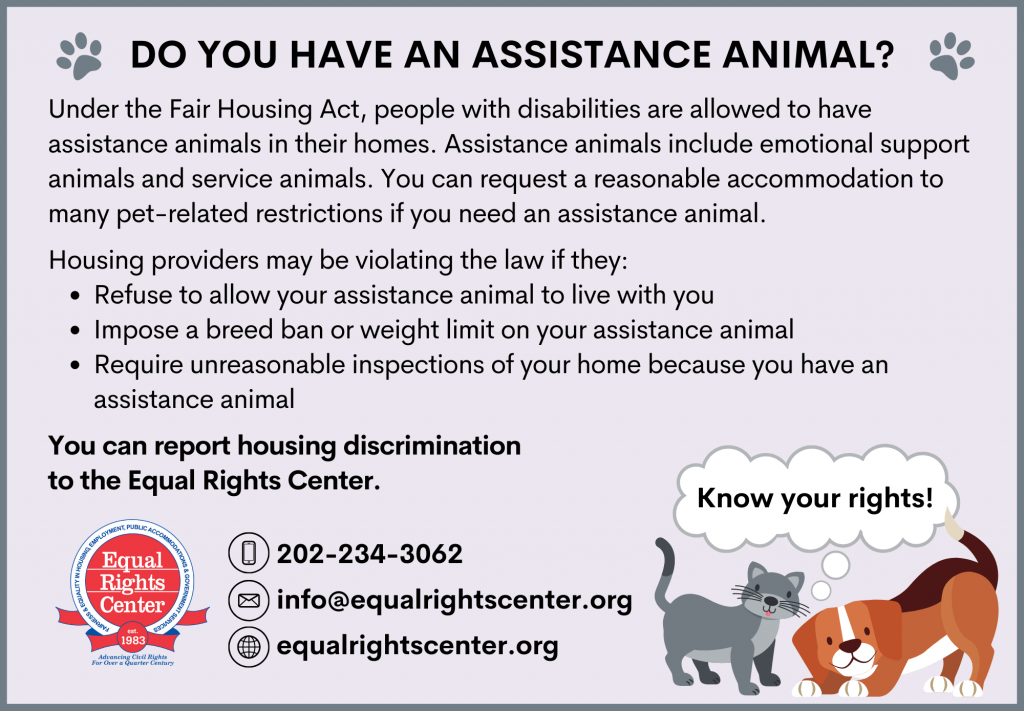Restrictions and Conditions on Assistance Animals and Their Owners Could Violate the FHA
By Nick Adjami
October 27, 2021
Through a recent testing investigation, the ERC uncovered likely discriminatory behavior against people with disabilities by a housing provider operating in Maryland and Washington, DC. During tests, leasing staff at Battery Lane Apartments and La Reine Apartments, both managed by Kossow Management, stated that people with disabilities with assistance animals would be subjected to quarterly inspections of their homes. It did not appear that residents with pets were subjected to such inspections. At Battery Lane Apartments, leasing staff also indicated that assistance animals would only be allowed under a certain weight limit.
Under the Fair Housing Act (FHA), people with disabilities have the right to request “reasonable accommodations” in housing. A reasonable accommodation is a change to a rule, policy, practice, or service that provides a person with a disability equal opportunity to use and enjoy their home. One common type of reasonable accommodation is for people with disabilities to be allowed assistance animals in their homes. Some buildings have a “no pets” policy, while others may only allow animals under a certain size or weight, or they may ban animals of certain breeds. A landlord must waive its “no pets” policy or any size, breed, and weight restrictions for individuals with disabilities who have assistance animals. Stating that an assistance animal must be under a certain weight limit is likely illegal discrimination under the Fair Housing Act.
Additionally, it would be illegal for a housing provider to apply different terms and conditions to residents with disabilities. Requiring that tenants with assistance animals undergo quarterly inspections, while not having the same requirement for tenants with pets is likely illegal discrimination under the Fair Housing Act. For more information about reasonable accommodations and the rights of people with disabilities in housing, visit the ERC’s Making Home Accessible toolkit.

Service animals and emotional support animals are both considered to be assistance animals. Service animals are trained to perform one or more tasks to assist people with disabilities, such as a guide dog assisting a blind tenant navigating their surroundings. Emotional support animals are not specially trained, but their presence improves disability-related symptoms for people with disabilities. For example, an emotional support cat may improve a person’s symptoms from depression or another mental health disability. For more information on service and assistance animals, and protections under the FHA and Americans with Disabilities Act (ADA), visit the ERC’s resource, Navigating Life with your Service or Assistance Animal.
If you believe you may have experienced discrimination in housing, you can contact the Equal Rights Center. To report your experience, please call 202-234-3062 or email info@equalrightscenter.org.
———
If you believe you may have experienced discrimination in housing, you can contact the Equal Rights Center. To report your experience, please call 202-234-3062 or email info@equalrightscenter.org.

